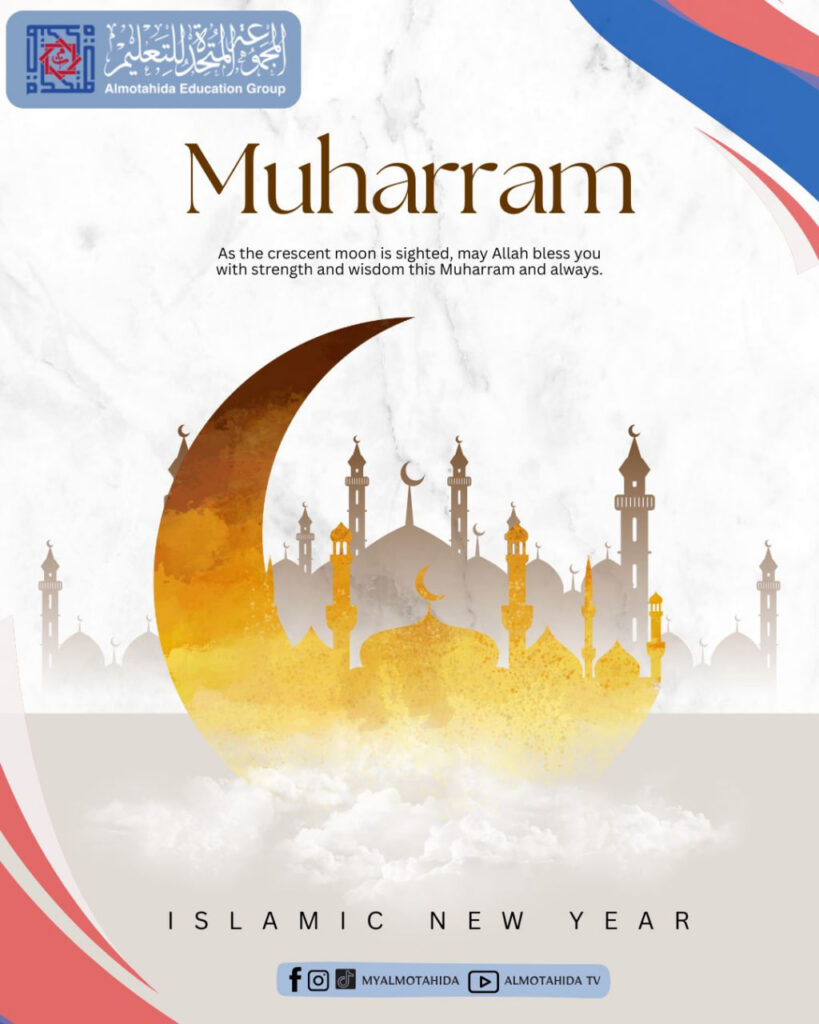In the year 2025, Muslims around the world will observe Maal Hijrah, or Awal Muharram, on Friday, 27 June 2025, marking the beginning of the new Islamic year 1447H. This occasion is not merely a change in the calendar but a commemoration of one of the most important events in Islamic history — the migration (Hijrah) of Prophet Muhammad ﷺ from Makkah to Madinah.
The Meaning Behind Maal Hijrah
Maal Hijrah is not an ordinary holiday or a symbolic celebration. It reminds us of the great sacrifices, strategic planning, and wisdom of the Prophet ﷺ in building a just, united, and independent Islamic society in Madinah. Hijrah was not just a physical journey, but a complete transformation of life — from weakness to strength, from oppression to freedom, and from hidden faith to the open practice of Islam.
The adoption of Hijrah as the starting point of the Islamic calendar was decided by Caliph Umar ibn al-Khattab RA. It symbolises a paradigm shift — a call to leave behind disobedience and move towards the pleasure of Allah SWT.
The Significance of Awal Muharram in the Lives of Muslims
1. A Starting Point for Self-Reflection
Awal Muharram marks the beginning of the Islamic year and offers an opportunity to assess one’s spiritual growth, acts of worship, and personal conduct over the past year.
2. A Chance to Set New Intentions
Just as the people of Madinah welcomed the Prophet ﷺ with sincerity and readiness for change, we too are encouraged to embrace personal transformation — from heedlessness to awareness, from laziness to diligence, and from sin to repentance.
3. A Reminder of Unity and Sacrifice
The Hijrah teaches us that meaningful change requires sacrifice — whether of time, wealth, or personal comfort. This spirit remains essential in building a strong and harmonious Muslim society.
Three Recommended Sunnah Practices for Awal Muharram
1. Supplications at the End and Beginning of the Year
It is recommended to recite two specific duʿaʾs — one before Maghrib on the 30th of Zulhijjah and another after Maghrib on the 1st of Muharram — to seek forgiveness for past shortcomings and ask for blessings in the coming year.
“O Allah, make this year a year of blessings for us…”
اللهم اجعل هذا العام عامًا مباركًا علينا…
2. Fasting on the Days of Tasuʿa (9th Muharram) and ʿAshura (10th Muharram)
Fasting on the 10th of Muharram (known as ʿAshura) carries great merit, as stated in the hadith:
“Fasting on the day of ʿAshura, I hope Allah will expiate the sins of the previous year.”
(Narrated by Muslim)
It is also recommended to fast on the 9th (Tasuʿa) to differentiate from the practice of the Jews.
3. Increasing Zikr and Istighfar
The Islamic new year is a perfect time to renew our connection with Allah through acts of remembrance, supplication, and seeking forgiveness. Regular recitation of morning and evening adhkar and sincere repentance help purify the heart and bring one closer to Allah.
Conclusion: Hijrah of the Heart, the Self, and the Ummah
Maal Hijrah should not be limited to ceremonies, lectures, or songs. It should serve as a catalyst for mental, spiritual, and social transformation. True Hijrah is the journey of standing for truth and righteousness, even if it requires leaving comfort behind.
May the year 1447H be a year of growth, goodness, and renewed commitment to our faith — for ourselves, our families, and the entire Muslim Ummah.
O Allah, make this year one of goodness, blessings, and peace for Your entire Muslim Ummah.
اللهم اجعل هذا العام عامًا خير وبركة وسلام على أمتك الإسلامية أجمعين.
Written by: AKHMAL
Support and follow our journey through our official social media platforms!

